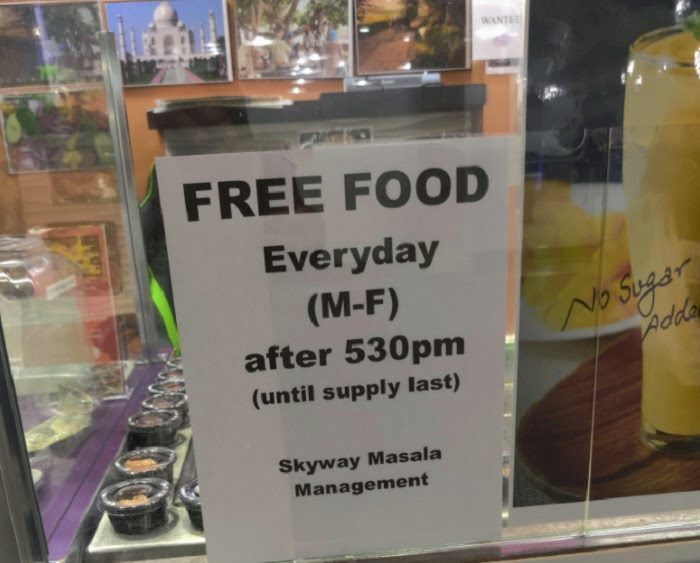Tahir Ayyub got to enjoy the normal lunch rush for about six months.
Opened in August 2019, Skyway Masala was just gaining traction in downtown St. Paul when the pandemic hit. The Indian/Mughlai restaurant at 444 Cedar St. #216 temporarily shut down, and Ayyub's two business partners permanently dropped out. But its owner kept plowing ahead—and helping others.
"I realized, this is the best time," Ayyub says. "Our community, our friends and neighbors, they need help."
The Pakistani immigrant was already feeding folks by running the fresh food program at his Woodbury mosque, serving around 200 meals every Wednesday. In mid-2020, Ayyub partnered Skyway Masala with Feeding Saint Paul, though the food-distribution group eventually stopped showing up. "Maybe they got too busy," he guesses.
So Ayyub seized the means of distribution in the simplest way possible: He posted a sign that reads "FREE FOOD." Every weekday at closing time, since the beginning of the year, Ayyub has fed meals to around 10-15 hungry people.
"About 50 percent are probably facing homelessness or some other difficulties," he estimates. "The other 50 percent are usually regular customers—they help me in the morning, I help them in the evening."
The food is leftover from the day's buffet, which Ayyub personally cooks fresh every morning. "Everything is made from scratch right here, and I have my own recipes—I don’t follow Google or YouTube," he notes with pride. That means grinding spices, simmering sauces, and putting 40 ingredients into Skyway Masala's top-selling dish.
"This might be surprising, but the most popular dish here is chickpeas," Ayyub says. "I use only imported Turkish chickpeas, and if I’m making them for tomorrow, I start at noon today."
Other customer favorites include the namesake chicken masala and the house-made mango drink.
Foot traffic picked up slightly in August, Ayyub says, but the surging Delta variant threw a wrench in plans for companies to return to office life. Insurance giant Travelers Insurance, for example, just extended remote-work policies for its 2,000 downtown St. Paul workers by at least a month, the Hartford Courant reports.
As enhanced unemployment benefits and eviction moratoriums begin disappearing, the forecast appears bleak for Minnesota's hunger crisis. Absent meaningful safety nets, our society counts on the generosity of people like Ayyub.
"I have a very polite message for our neighbors, the restaurants and food businesses," he says, just as our conversation ends. "If we all come out and help, as much as we can, we can cure easily this hunger issue."






